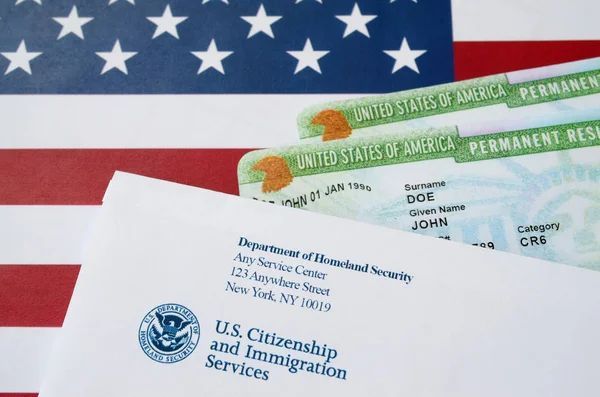🗣️ Fluent in English, Spanish & Portuguese 🌍
Finding Hope: Inspiring Stories of Overcoming Deportation
Overcoming Deportation: Real-Life Case Successes
Understanding Deportation
Deportation can be an incredibly daunting experience for many individuals and families who find themselves facing this legal challenge. It often stems from a variety of legal issues, including visa violations, criminal convictions, or changes in immigration status that may have occurred over time. However, amidst these challenges, there are numerous success stories of individuals who have successfully navigated the complexities of immigration law to overcome deportation. This blog post will delve into real-life case successes, providing valuable insights and strategies that can be helpful for those facing similar challenges in their own lives.Common Grounds for Deportation
Before diving into the inspiring success stories, it’s essential to understand the common grounds for deportation that individuals may encounter. These include:- Visa overstays, which occur when an individual remains in the U.S. beyond the expiration date of their visa.
- Criminal convictions, which can lead to removal proceedings depending on the nature of the crime.
- Fraud or misrepresentation, which can involve providing false information during the immigration process.
- Failure to maintain status, which can happen if an individual does not comply with the terms of their visa or immigration status.
- Public charge issues, which arise when an individual is deemed likely to rely on government assistance.
Real-Life Case Successes
Case Study 1: The Family Reunification
Maria, a devoted mother of two, faced the terrifying prospect of deportation due to an expired visa. After living in the U.S. for over a decade, she was apprehended during a routine immigration check. Maria's attorney took immediate action by filing for a cancellation of removal, arguing that her children, both U.S. citizens, would suffer extreme hardship if she were deported back to her home country. Through compelling evidence, including heartfelt testimonies from teachers, community members, and even medical professionals, the attorney was able to demonstrate the emotional and financial impact of separation on Maria's family. The judge ultimately ruled in favor of Maria, allowing her to stay in the U.S. and reunite with her family, highlighting the importance of community support in legal battles.Case Study 2: The Asylum Seeker
Ahmed, a courageous individual, fled his home country due to severe political persecution that threatened his life. Upon arriving in the U.S., he applied for asylum but was placed in removal proceedings after a significant delay in processing his application. His attorney presented a strong case, meticulously highlighting the dangers Ahmed would face if he were forcibly returned to his home country. By providing detailed documentation of his traumatic experiences and expert testimony on the current political climate in his country, Ahmed was granted asylum. This case underscores the critical importance of thorough preparation and legal representation in asylum cases, as well as the need for individuals to share their stories and seek justice.Case Study 3: The Criminal Conviction
John, a lawful permanent resident, faced the daunting threat of deportation after a minor criminal conviction that he believed did not reflect his true character. His attorney argued passionately that the crime did not define him and that he had been a contributing member of society for many years. The attorney gathered character references, evidence of John's community involvement, and testimonials from friends and family who attested to his positive contributions. Ultimately, the judge decided to grant John a waiver, allowing him to remain in the U.S. This case illustrates that even individuals with criminal records can find success in deportation cases when they have the right legal strategy and support system in place.Strategies for Overcoming Deportation
Based on the success stories outlined above, here are some strategies that can be incredibly helpful for individuals facing deportation:- Seek Legal Representation: Engaging an experienced immigration attorney is crucial. They can navigate the complexities of immigration law and provide tailored advice specific to your situation.
- Gather Evidence: Collect comprehensive documentation that supports your case, including personal statements, character references, and any relevant records that can bolster your argument.
- Understand Your Rights: Familiarize yourself with your rights under U.S. immigration law. This knowledge can empower you during legal proceedings and help you advocate for yourself effectively.
- Explore All Options: There may be various forms of relief available, such as asylum, cancellation of removal, or waivers. Discuss these options thoroughly with your attorney to determine the best course of action.
- Stay Informed: Keep up with changes in immigration law and policies that may affect your case. Being informed can help you make better decisions and prepare for potential challenges.
Conclusion
Overcoming deportation is undoubtedly a challenging journey, but as demonstrated by these real-life case successes, it is possible to achieve a favorable outcome. With the right legal support, thorough preparation, and a clear understanding of your rights, you can navigate the complexities of immigration law and work towards a positive resolution to your situation. If you or someone you know is facing the threat of deportation, don’t hesitate to reach out for help. Schedule a consultation with Quattrochi, Torres and Taormina by visiting this link to explore your options and receive the guidance you need. Disclaimer: The information provided in this blog post is for general informational purposes only and does not constitute legal advice. The content is not intended to create, and receipt of it does not constitute, an attorney-client relationship. No action should be taken based on the content of this blog post without first consulting qualified legal counsel. While every effort has been made to ensure the accuracy and completeness of the information, Quattrochi, Torres & Taormina, P.A. makes no warranties or representations as to the accuracy, completeness, or suitability of the information for any purpose. Quattrochi, Torres & Taormina, P.A. will not be liable for any errors or omissions in this information nor for the availability of this information. Any reliance you place on such information is strictly at your own risk. Quattrochi, Torres & Taormina, P.A. disclaims any and all liability with respect to actions taken or not taken based on the contents of this blog post to the fullest extent permitted by law. This post does not cover every possible situation, and you should always consult with an attorney or the relevant agency before taking any action. By using this site and relying on the information provided, you agree that Quattrochi, Torres & Taormina, P.A., its partners, employees, and affiliates, shall not be held liable for any direct, indirect, incidental, special, or consequential damages or losses, whether in contract, tort, or otherwise, arising out of or in connection with the use of the information contained in this blog post.
By Juan Torrico
•
January 16, 2025
Discover the latest updates on Temporary Protected Status (TPS) as new countries are added to the list, providing crucial support for individuals facing crises. Learn about eligibility, application processes, and the benefits of TPS to secure your future in the U.S.

By Juan Torrico
•
January 9, 2025
Stay updated on the latest developments in border wall construction and security measures, as we explore funding, technological advancements, and community impacts shaping the future of U.S. border policy. Click to learn more about the complexities and implications of these critical initiatives!
CONTACT US
950 S. Winter Park Dr., Suite 207
Casselberry, FL 32707
PRACTICE AREAS









